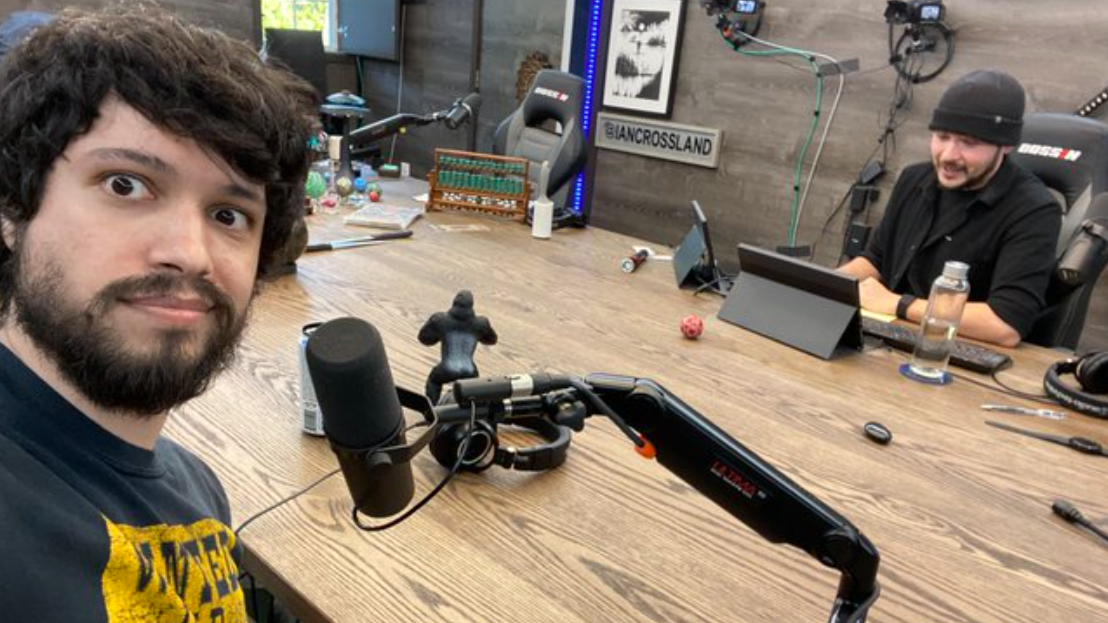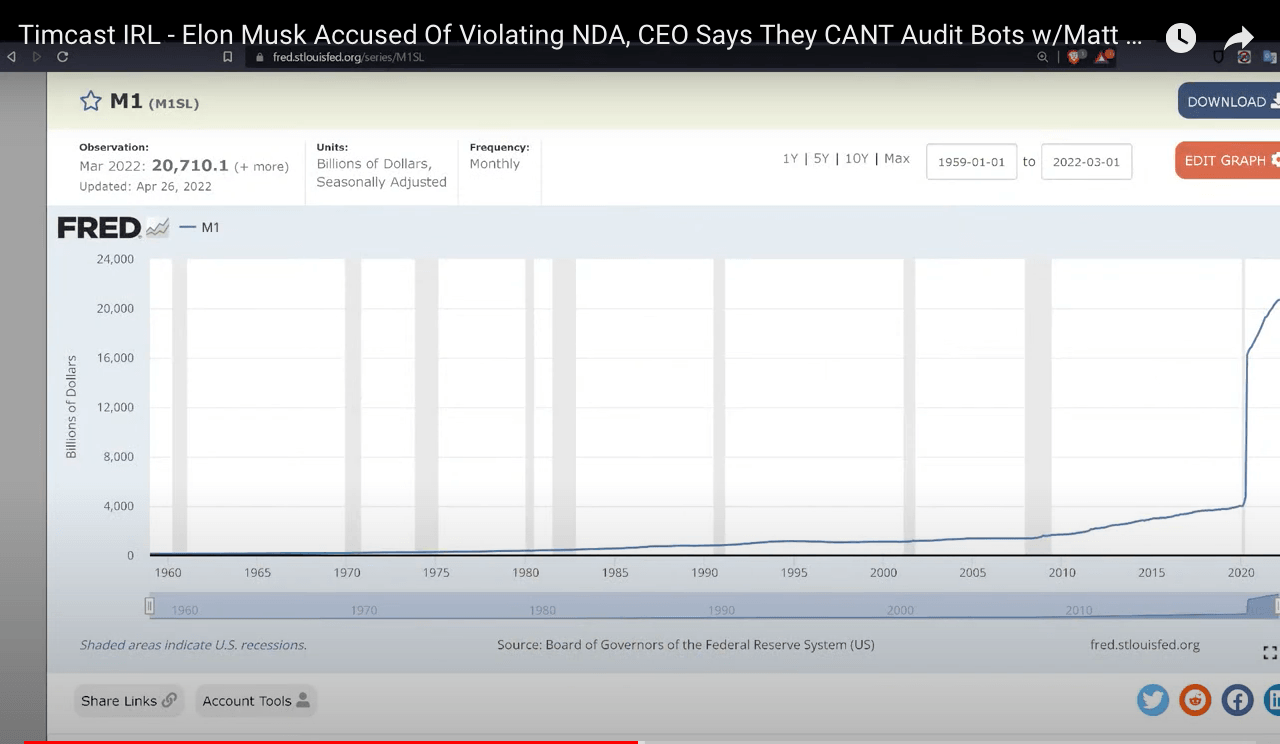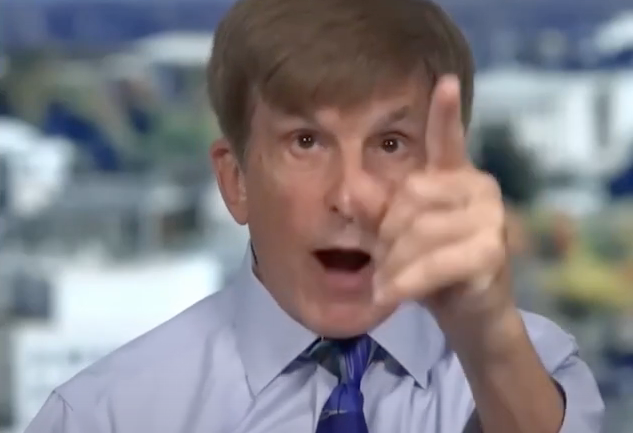Matt Binder Doesn't Seem To Understand The American Economy
Matt Binder wasn't able to get too far into a conversation about economics on Timcast...

Matt Binder is a progressive radio host, YouTuber, and cohost of "The Majority Report w/ Sam Seder" who appeared on Tim Pool's podcast TimcastIRL last Monday night.
All and all, the discussions were relatively boring, as the vast majority of the time was spent repeating the same questions to Matt Binder over and over again while he consistently danced around what seemed like every single question that was posed to him the entire night.
That said, there was one particular part of the debate that was very telling and well, quite frankly, interesting. We got to hear Matt Binder talk about something very briefly that we almost never get to hear him talk about on his shows - yes, you guessed it! - the ECONOMY.
Now, I want to make myself clear, because I don't think I can overstate this enough: This conversation was BRIEF.
Here at EndingPolitics.com we love conversations about the economy, so once I heard some economic words uttered, my eyes shot up and away from my phone which was basically preventing me from falling asleep during this boring conversation and locked on my television (I love my Roku!). "Could it be?" I thought. "Are they about to talk about something that ACTUALLY affects people's lives???!!"
Needless to say for those of you that have already seen it, I was extraordinarily disappointed when this conversation ended probably less than 30 seconds later.
But why? Why did it end so soon?
Well I'll tell you. It's because I don't think Matt Binder knows what he's talking about when it comes to the economy. Dude knows a ton about racism, homophobia, right-wing extremism, etc. (thinking back, I don't believe he brought up any examples that actually stood out or stuck with me - he may not have even talked about any anecdotes at all), but when it comes to the economy, he has very little to say.
We've taken the liberty of finding the timestamp in the clip for you, so you can skip ahead and listen to Matt Binder's economic
ignorance and tomfoolery.

This brief segment starts with Tim Pool putting up on his studio screen a screen cap of the M1 money supply chart. For those of us that have studied economics for a minute, this graph looks sort of scary.
Matt Binder though, seemed sort of puzzled when he saw it, and admitted he "wasn't familiar with it." I suppose he's never actually taken a look at any federal reserve charts in his lifetime, as these things aren't terribly difficult to pick up on quickly if you at least have a basic grasp of the subject-matter.
That said, it seemed for a minute like Tim Pool may have started to get through to this progressive at least economically, because when he ran his pointer over the skyrocketing line that began in 2020, he asked Matt Binder if it looked "shocking" to him, to which Matt Binder actually replied, "sure," seemingly beginning to grasp what Tim Pool was talking about.
But then came the interesting part. Binder never refuted that there does seem to be a looming economic collapse in this country, but then he asked Pool: "What should we do about it?"
Pool replied, "I think we should curtail spending and raise interest rates." This would certainly be a great start, and was certainly a logical thing to say when asked that question.
But then Binder asked something strange and seemingly-irrelevant: "You don't think we should raise taxes on the rich?"
Tim Pool seemed rightfully a bit confused about that question, and began to ask Binder to elaborate on his question. "What do wealthy people pay in taxes?" Pool asked Binder.
Binder stared into space for a moment, then returned with "...not enough."
Pool then asked Binder what we should be taxing wealthy people. Binder gave a strange, and historically incorrect answer: "Probably uhh what we taxed them back in the FDR years.... probably like 97%."
Binder may have been referring to the Revenue Act of 1935 which did raise taxes on the wealthy, but no where close to 97%. The highest official income tax rate on the very wealthiest Americans under FDR was 75%, and Seamus of FreedomToons (who was also present during the debate) rightfully remarked that no one actually paid those (incorrectly cited) taxes anyway; which Seaumus is correct regarding, as there were far more loopholes in the tax laws in the 1930s than there are today.
When Binder mentioned the 97% income tax rate, he could have been referring to a period in the 1950s when the official top tax rate for the wealthiest Americans was indeed 90% (not 97), but because of the loopholes in the tax laws in the '50s, much like the '30s, it was really just another symbolic number that no wealthy person actually ever paid. Binder doesn't seem to understand this.
Even if Matt Binder was correct about the tax rate (which he wasn't), he never explained his theory on how raising taxes on the wealthiest Americans would help to fight inflation. Obviously it would bring in more tax revenue, but that revenue never stays in the Treasury's bank account - it circulates back throughout the economy.
But then came the funniest part. Tim Pool asked Matt Binder specifically how he wanted to tax the wealthy. After a short dance, Matt Binder landed on "capital gains." Tim Pool asked him how much he wanted to tax the capital gains. At this point, Binder must've been a bit nervous, because he came back very quickly with quite a stupid answer: "I just told you. 90%." (Within less than a minute, he'd downgraded his number 7% to 90% instead of 97%.)
This was probably the single stupidest thing Matt Binder had said all night. He clearly has never invested in anything in his lifetime to think that such a plan would ever work in the real world. If any investor in his/her right mind knew that he'd be paying 90 cents on the dollar on his investment returns to the government, he/her would never make the investment in the first place - it would be far too risky with way too poor of a potential upside. Or, and this is the best case scenario, the rich person would make the investment - just not in America - he/she would set the investment up overseas so the American government wouldn't be able to touch it.
From what we've been able to ascertain, Matt Binder host at least two shows about politics, and possibly three. Yet, Matt Binder knows almost nothing about economics. This is problematic for someone who self-defines as a "progressive," as the term originally referred specifically to progressive economics and the people who supported them. If he's not able to engage on the level in an intellectual conversation about economics in America, he probably shouldn't be calling himself a "progressive," or hosting a "progressive" political show. He should call himself a "SocDem" or some other label that has nothing to do with economics - because he knows nothing about it.




